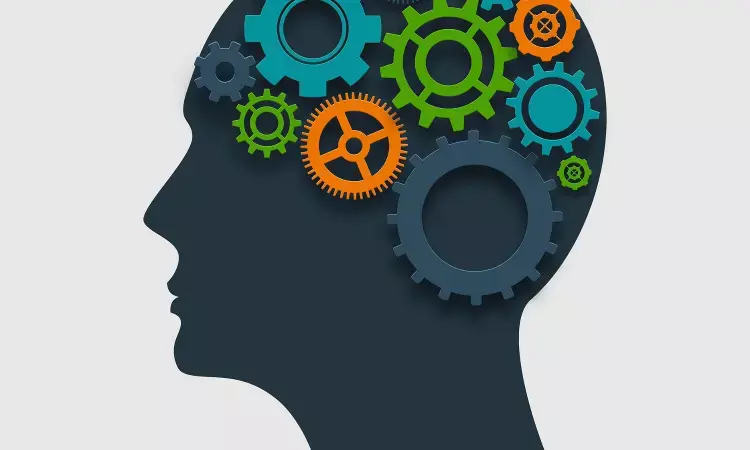- Home
- Medical news & Guidelines
- Anesthesiology
- Cardiology and CTVS
- Critical Care
- Dentistry
- Dermatology
- Diabetes and Endocrinology
- ENT
- Gastroenterology
- Medicine
- Nephrology
- Neurology
- Obstretics-Gynaecology
- Oncology
- Ophthalmology
- Orthopaedics
- Pediatrics-Neonatology
- Psychiatry
- Pulmonology
- Radiology
- Surgery
- Urology
- Laboratory Medicine
- Diet
- Nursing
- Paramedical
- Physiotherapy
- Health news
- Fact Check
- Bone Health Fact Check
- Brain Health Fact Check
- Cancer Related Fact Check
- Child Care Fact Check
- Dental and oral health fact check
- Diabetes and metabolic health fact check
- Diet and Nutrition Fact Check
- Eye and ENT Care Fact Check
- Fitness fact check
- Gut health fact check
- Heart health fact check
- Kidney health fact check
- Medical education fact check
- Men's health fact check
- Respiratory fact check
- Skin and hair care fact check
- Vaccine and Immunization fact check
- Women's health fact check
- AYUSH
- State News
- Andaman and Nicobar Islands
- Andhra Pradesh
- Arunachal Pradesh
- Assam
- Bihar
- Chandigarh
- Chattisgarh
- Dadra and Nagar Haveli
- Daman and Diu
- Delhi
- Goa
- Gujarat
- Haryana
- Himachal Pradesh
- Jammu & Kashmir
- Jharkhand
- Karnataka
- Kerala
- Ladakh
- Lakshadweep
- Madhya Pradesh
- Maharashtra
- Manipur
- Meghalaya
- Mizoram
- Nagaland
- Odisha
- Puducherry
- Punjab
- Rajasthan
- Sikkim
- Tamil Nadu
- Telangana
- Tripura
- Uttar Pradesh
- Uttrakhand
- West Bengal
- Medical Education
- Industry
Metacognitive training shows promising outcomes in psychosis cases, JAMA says

Canada: In a new study published in JAMA Psychiatry it was seen that in numerous treatment situations, metacognitive training (MCT) for psychosis was related to effects up to one year after the intervention.
A significant rise in the number of studies evaluating metacognitive training for psychosis needs an updated assessment of the outcomes related to MCT. As a result, Danielle Penney and colleagues conducted this study to examine the instant and maintained associations of MCT with proximal and distal outcomes, as well as to assess treatment- and participant-related moderators to identify potential factors associated with the expected heterogeneity of effect sizes.
From 2007 until June 3, 2021, eleven electronic databases were searched (alert until September 10, 2021). The reference lists of previous meta-analyses and included publications were sifted through. MCT was studied in reports, and patients with schizophrenia spectrum illness and similar psychotic disorders were included (1045 reports identified; 281 assessed). There were no constraints on age, gender, race & ethnicity, language, or research design. The studies to be evaluated were chosen by two reviewers. Global pleasant symptoms, hallucinations, delusions, and cognitive biases were the proximal results. Self-esteem, quality of life, negative symptoms, well-being, and functioning were the distal outcomes. Immediate and long-term consequences were investigated. Moderators were investigated using meta-regressions, subgroup, and sensitivity analyses.
The key findings of this study were as follow:
1. This meta-analysis and systematic review includes 43 papers (46 reports).
2. In the meta-analysis (N=1816 individuals), forty studies were synthesized, and six reports were included in the narrative review.
3. MCT was linked to positive symptoms, hallucinations, delusions, cognitive biases, negative symptoms, self-esteem, and functioning in the trials reviewed.
4. These relationships were kept for a year.
5. The size of the quality of life effect was insignificant; only one research measured well-being.
6. The year of publication was linked to mild hallucinations. Overall, the findings of the narrative review confirmed the findings of the meta-analysis.
In conclusion, the outcomes of this comprehensive study and meta-analysis reveal that MCT is a useful and long-lasting low-threshold intervention that may be administered flexibly and at little cost in a number of venues to people suffering from psychotic illnesses.
Reference:
Penney D, Sauvé G, Mendelson D, Thibaudeau É, Moritz S, Lepage M. Immediate and Sustained Outcomes and Moderators Associated With Metacognitive Training for Psychosis: A Systematic Review and Meta-analysis. JAMA Psychiatry. Published online March 23, 2022. doi:10.1001/jamapsychiatry.2022.0277
Medical Dialogues consists of a team of passionate medical/scientific writers, led by doctors and healthcare researchers. Our team efforts to bring you updated and timely news about the important happenings of the medical and healthcare sector. Our editorial team can be reached at editorial@medicaldialogues.in.
Dr Kamal Kant Kohli-MBBS, DTCD- a chest specialist with more than 30 years of practice and a flair for writing clinical articles, Dr Kamal Kant Kohli joined Medical Dialogues as a Chief Editor of Medical News. Besides writing articles, as an editor, he proofreads and verifies all the medical content published on Medical Dialogues including those coming from journals, studies,medical conferences,guidelines etc. Email: drkohli@medicaldialogues.in. Contact no. 011-43720751


